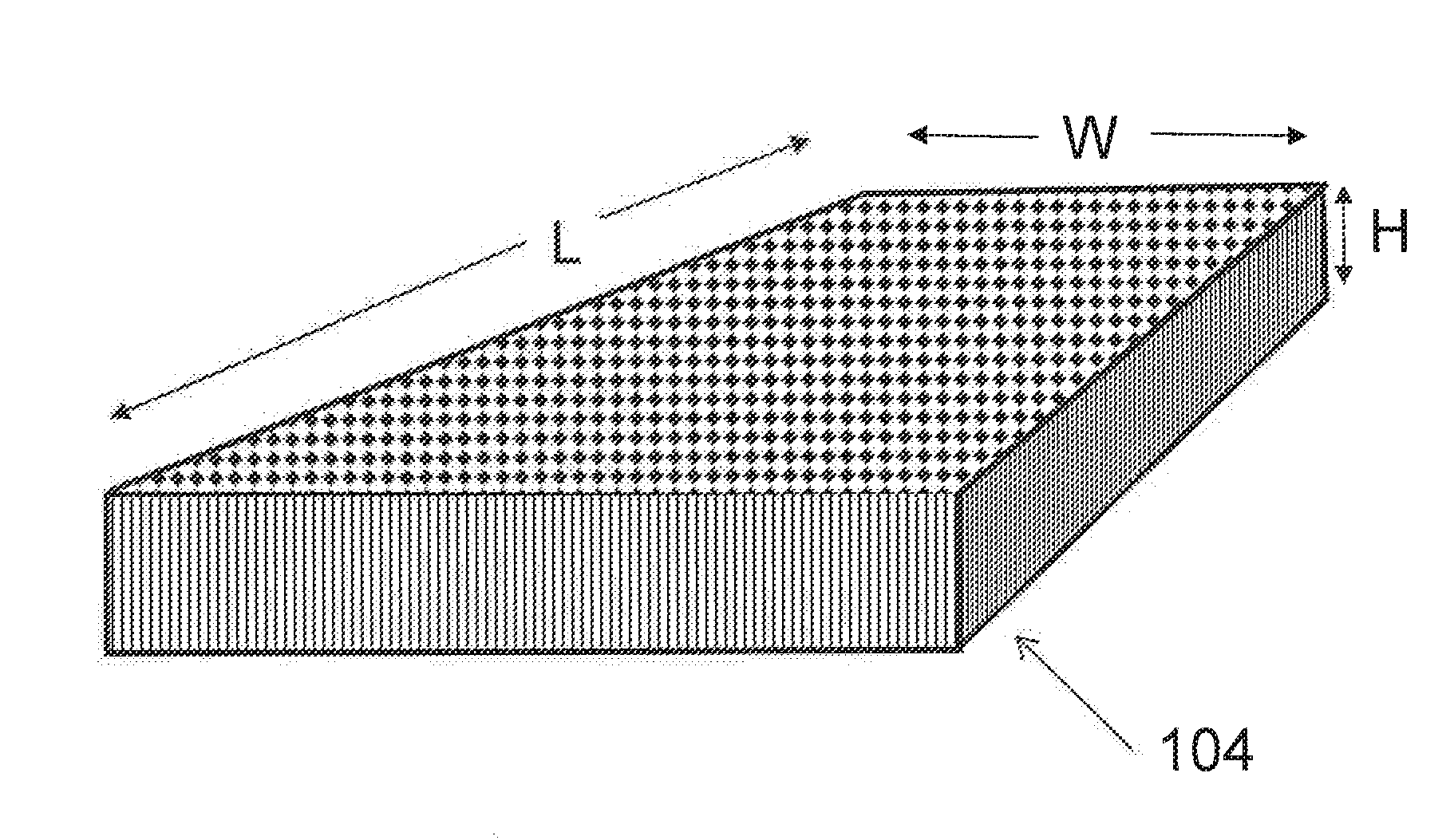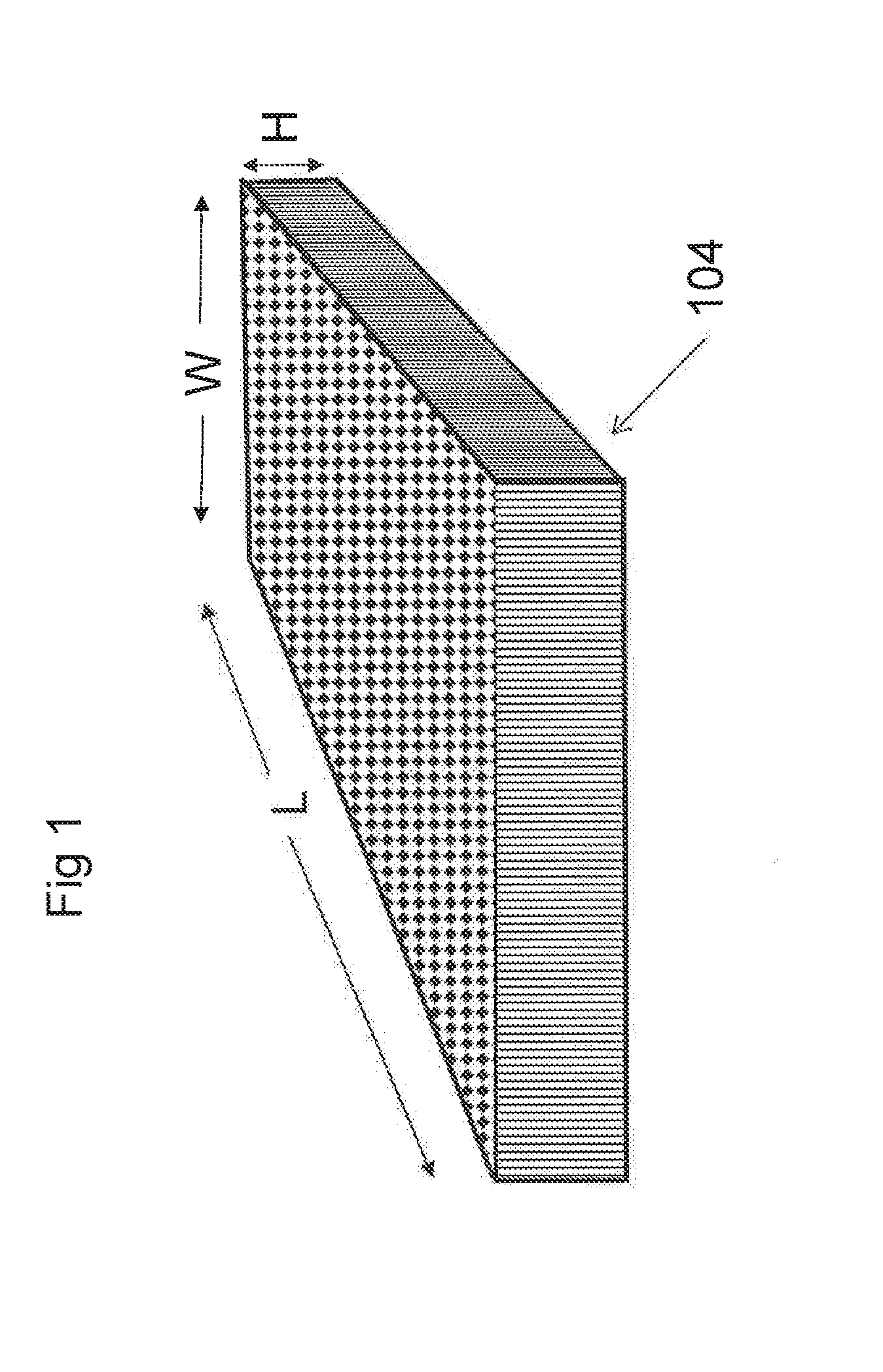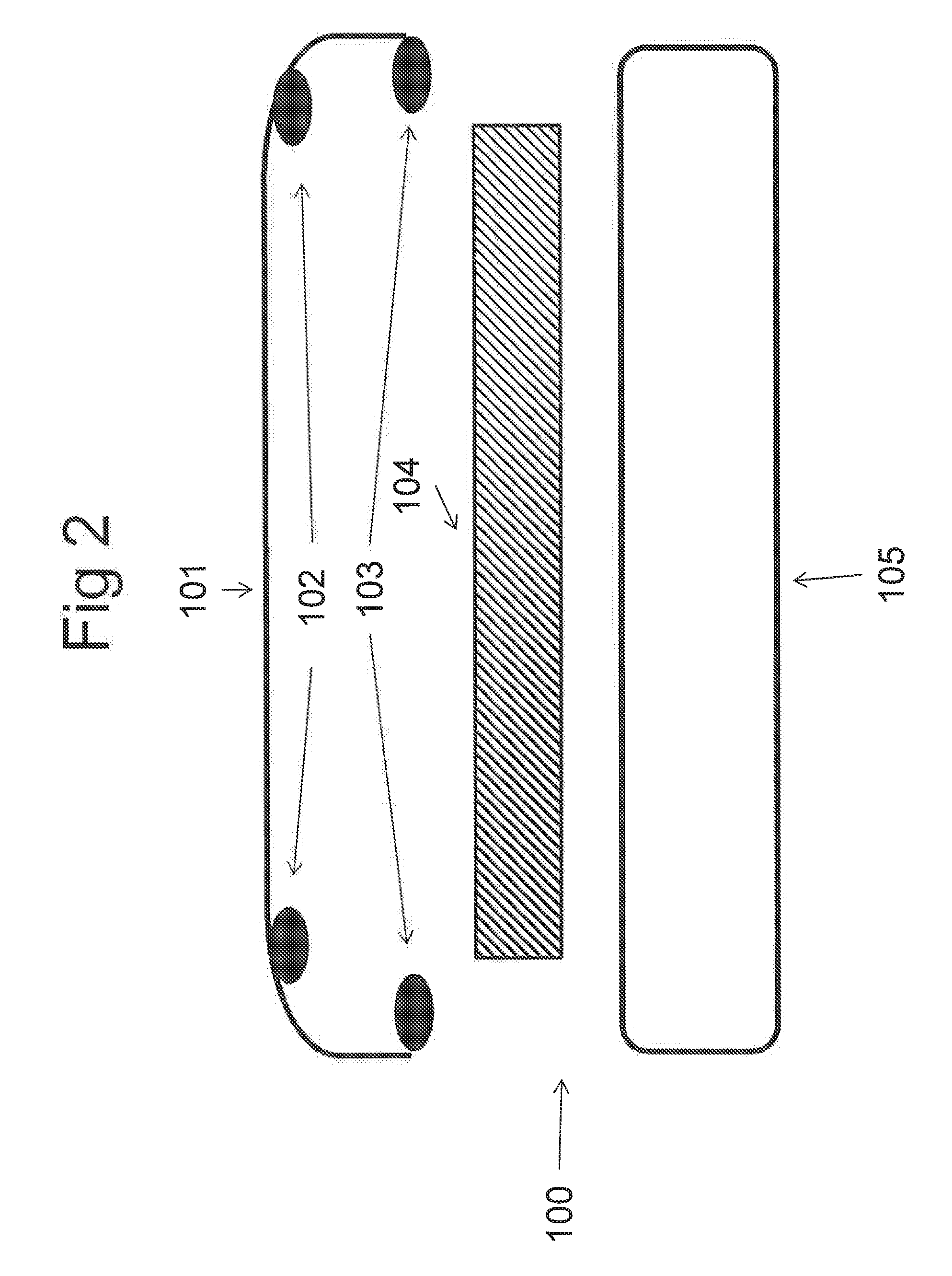Removal of ozone from electrokinetic devices
a technology of electrokinetic devices and ozone removal, which is applied in the direction of positive displacement liquid engines, physical/chemical process catalysts, metal/metal-oxide/metal-hydroxide catalysts, etc., can solve the problems of commercial devices that were unsuccessful in preparing for ion-propulsion devices and the inability to apply
- Summary
- Abstract
- Description
- Claims
- Application Information
AI Technical Summary
Benefits of technology
Problems solved by technology
Method used
Image
Examples
example 1
Assembly of the Device of the Current Invention
[0040]The Sharper Image Air Freshener model IU627JPN is used. This compact device has the disadvantage that air inflow and outflow are on the same side. There is thus mixing between the two air streams that reduces the efficiency of the device, since the same air is repeatedly re-processed. It is converted into a uni-directional flow device by cutting louvers into the rear side of the housing. The louvers are 4 mm×30 mm at 2 mm spacing. Eleven such louvers are cut with a milling machine adjacent to the length of the internal high voltage wire. Catalyst, fabricated according to the specifications of U.S. Pat. No. 4,871,709, was NHC-423 from Nikki-Universal, Tokyo, Japan, in the form of blocks 109 mm×52 mm×10 mm thick and being made of ceramic fiber aggregate coated with MnO2 with 200 cells / inch. The clamshell as in FIG. 7 was fabricated by 3D printing, and the dimensions were such that the four corners of the catalyst were wedged into pl...
example 2
Effect of Catalyst on Air Flow Rate
[0041]Five devices are assembled as in Example 1. Air flow rate is determined with a hot wire anemometer (Heavy Duty Anemometer, Extech, Nashua, N.H.). The probe is placed at the center of each of the 11 inlet louvers created as in Example 1. The total volume flow is computed from the average of the air velocity at each position. The results for 5 devices are shown in Table 1.
TABLE 1Air flow of devices (Liters / min)DeviceFlow without catalystFlow with catalyst11121192 991093102 9341311185106133Mean110115
[0042]The mean difference of 5 liters / min is not considered significant. Similar evaluation of the catalyst NHC-453 with 500 cells per inch and 5 mm thickness resulted in a reduction of flow rate by of 40%, and complete destruction of ozone in effluent. There is thus an optimal combination of cells per inch of catalyst and thickness of catalyst for ozone destruction and flow rate.
[0043]The prior art suggests an extremely open structure needs to be us...
PUM
| Property | Measurement | Unit |
|---|---|---|
| thickness | aaaaa | aaaaa |
| thickness | aaaaa | aaaaa |
| thickness | aaaaa | aaaaa |
Abstract
Description
Claims
Application Information
 Login to View More
Login to View More - R&D
- Intellectual Property
- Life Sciences
- Materials
- Tech Scout
- Unparalleled Data Quality
- Higher Quality Content
- 60% Fewer Hallucinations
Browse by: Latest US Patents, China's latest patents, Technical Efficacy Thesaurus, Application Domain, Technology Topic, Popular Technical Reports.
© 2025 PatSnap. All rights reserved.Legal|Privacy policy|Modern Slavery Act Transparency Statement|Sitemap|About US| Contact US: help@patsnap.com



